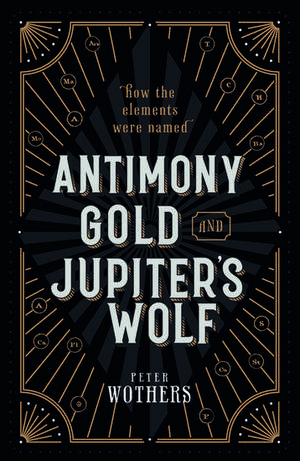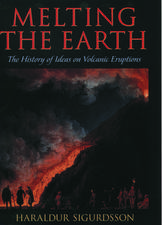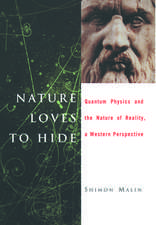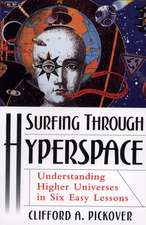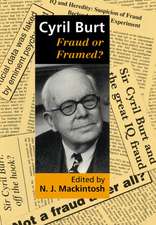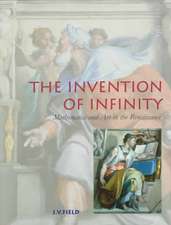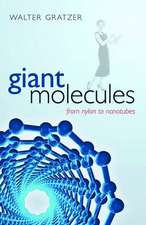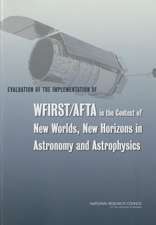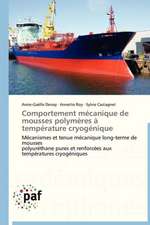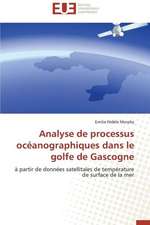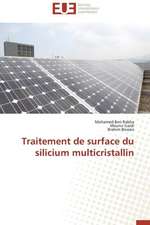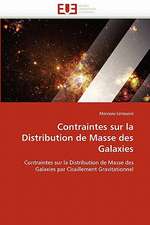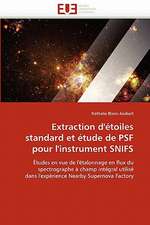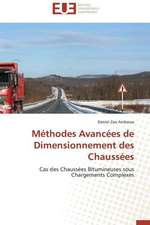Antimony, Gold, and Jupiter's Wolf: How the elements were named
Autor Peter Wothersen Limba Engleză Hardback – 28 noi 2019
Preț: 122.92 lei
Preț vechi: 146.31 lei
-16% Nou
Puncte Express: 184
Preț estimativ în valută:
23.52€ • 24.47$ • 19.42£
23.52€ • 24.47$ • 19.42£
Carte tipărită la comandă
Livrare economică 03-09 aprilie
Livrare express 07-13 martie pentru 54.86 lei
Preluare comenzi: 021 569.72.76
Specificații
ISBN-13: 9780199652723
ISBN-10: 0199652724
Pagini: 290
Ilustrații: A number of black and white images
Dimensiuni: 161 x 241 x 29 mm
Greutate: 0.52 kg
Editura: OUP OXFORD
Colecția OUP Oxford
Locul publicării:Oxford, United Kingdom
ISBN-10: 0199652724
Pagini: 290
Ilustrații: A number of black and white images
Dimensiuni: 161 x 241 x 29 mm
Greutate: 0.52 kg
Editura: OUP OXFORD
Colecția OUP Oxford
Locul publicării:Oxford, United Kingdom
Recenzii
[An] enchanting, eccentric book ... wickedly entertaining.
Such a book could only have been written by an academic deeply learned and passionate about chemistry ... it is also the kind of book whose title might pique someone's interest in a bookshop and inspire a lifelong passion for chemistry and its history ... it seems worth celebrating that some academics are still producing books so curious, wide-ranging and enthusiastic.
[An] erudite, complex, but always enjoyably unbuttoned account of how the elements acquired their names. A charming way to convey the history of this science.
In this stimulating chemical chronicle, Peter Wothers unravels tangled etymologies.
Wothers book is an enjoyable read for anyone interested in chemistrys history - and especially for anyone with an interest in why we chemists use the words we do.
It is immediately clear that a phenomenal amount of research has gone into [the book]. The author's own passion for chemistry's history is evident, through references to a huge variety of (al)chemical texts... The book is well paced and clearly organised, and definitely accessible to chemists and non-chemists alike... The rich tapestry of overlapping and interconnected stories means that any reader will come away with renewed appreciation of the art and artifice of our chemistry.
Thorough and well-researched exploration of how the elements were named ... Readers even casually interested in the history of chemistry would do well to pick up this energetic survey.
Antimony, Gold, and Jupiter's Wolf unfolds as a series of more-or-less separate and chronological stories ... this makes it easy for a reader to easily dip in at any point ... lively volume.
Wothers takes us through these mysterious chemical treatments and discoveries with the ease of a practiced writer. The amount of information he reveals is astounding and also often entertaining.
Detailed and thorough ... A well-written reference book on history of science for the enthusiast, connoisseur or professional.
Peter Wothers combines history of science, the study of the origin of the names of the elements and general chemical revelations in his elemental tour, which proved delightful.
A timely study of the chemical elements ... Wothers has included a great deal of material in his book, and any chemist interested in the history of his subject will enjoy it. Some will wish to read it from cover to cover, while others will dip into it for information on particular elements.
This erudite yet accessible and entertaining account describes the challenges, confusions, illuminations, and jealousies involved in the naming of the underlying fabric of the everyday world. Anyone who enjoys the practice of science will be enriched by what they will read here.
Everything is here: from making phosphorus out of faeces all the way to superheavy elements, illuminated by a delightful combination of chemical insight and historical knowledge.
Such a book could only have been written by an academic deeply learned and passionate about chemistry ... it is also the kind of book whose title might pique someone's interest in a bookshop and inspire a lifelong passion for chemistry and its history ... it seems worth celebrating that some academics are still producing books so curious, wide-ranging and enthusiastic.
[An] erudite, complex, but always enjoyably unbuttoned account of how the elements acquired their names. A charming way to convey the history of this science.
In this stimulating chemical chronicle, Peter Wothers unravels tangled etymologies.
Wothers book is an enjoyable read for anyone interested in chemistrys history - and especially for anyone with an interest in why we chemists use the words we do.
It is immediately clear that a phenomenal amount of research has gone into [the book]. The author's own passion for chemistry's history is evident, through references to a huge variety of (al)chemical texts... The book is well paced and clearly organised, and definitely accessible to chemists and non-chemists alike... The rich tapestry of overlapping and interconnected stories means that any reader will come away with renewed appreciation of the art and artifice of our chemistry.
Thorough and well-researched exploration of how the elements were named ... Readers even casually interested in the history of chemistry would do well to pick up this energetic survey.
Antimony, Gold, and Jupiter's Wolf unfolds as a series of more-or-less separate and chronological stories ... this makes it easy for a reader to easily dip in at any point ... lively volume.
Wothers takes us through these mysterious chemical treatments and discoveries with the ease of a practiced writer. The amount of information he reveals is astounding and also often entertaining.
Detailed and thorough ... A well-written reference book on history of science for the enthusiast, connoisseur or professional.
Peter Wothers combines history of science, the study of the origin of the names of the elements and general chemical revelations in his elemental tour, which proved delightful.
A timely study of the chemical elements ... Wothers has included a great deal of material in his book, and any chemist interested in the history of his subject will enjoy it. Some will wish to read it from cover to cover, while others will dip into it for information on particular elements.
This erudite yet accessible and entertaining account describes the challenges, confusions, illuminations, and jealousies involved in the naming of the underlying fabric of the everyday world. Anyone who enjoys the practice of science will be enriched by what they will read here.
Everything is here: from making phosphorus out of faeces all the way to superheavy elements, illuminated by a delightful combination of chemical insight and historical knowledge.
Notă biografică
Dr Peter Wothers is a Teaching Fellow in the Department of Chemistry, University of Cambridge, and a Fellow and Director of Studies in Chemistry at St Catharine's College. He is heavily involved in promoting chemistry to young students and members of the public, and, in 2010, created the popular Cambridge Chemistry Challenge competition for students in the UK. Peter is known nationally and internationally for his demonstration lectures and presented the Royal Institution Christmas Lectures, titled The Modern Alchemist, in 2012. He has also authored a number of popular textbooks, including Why Chemical Reactions Happen and Chemical Structure and Reactivity, with colleague James Keeler. In 2014, he was awarded an M.B.E. for Services to Chemistry in the Queen's Birthday Honours.
